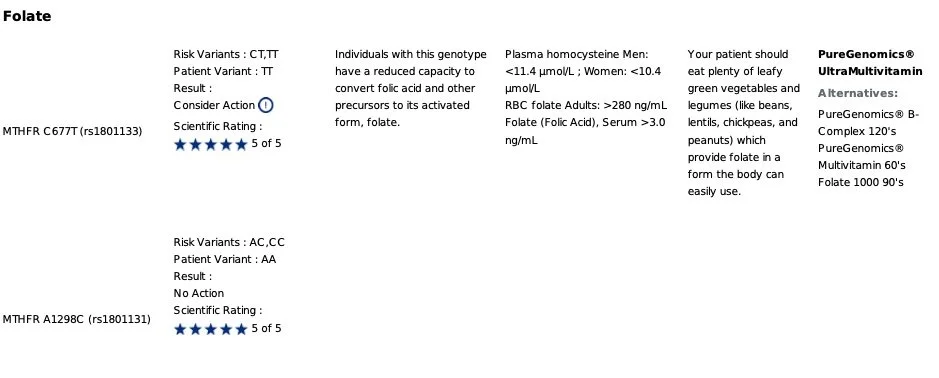Nutrigenomics: Decoding the Genetic Menu for Optimal Health
Image: Unsplash
In the intricate dance between our genes and the food we consume, a fascinating field emerges -nutrigenomics. This cutting-edge discipline explores how our genetic makeup interacts with dietary components, shaping our health and well-being. Let’s delve into the world of nutrigenomics, understanding its significance and practical applications.
What Is Nutrigenomics?
At its core, nutrigenomics investigates the dynamic interplay between nutrition, genes, and health outcomes. Here’s the breakdown:
Genetic Variants and Dietary Response
Specific genetic variations influence how our bodies respond to nutrients. Imagine your genes as a personalised recipe book. Some pages may dictate that you need more vitamin D, while others emphasise antioxidants. Nutrigenomics deciphers these genetic instructions, revealing how our bodies process and utilise nutrients.
Modifiable Risk Factors
Before we dive deeper, let’s understand modifiable risk factors. These are lifestyle-related elements that we can alter to improve health outcomes. Common examples include diet, physical activity, smoking, and alcohol consumption. Unlike non-modifiable factors (such as age and genetics), we have some control over these risk factors.
How Nutrigenomics Works
The Genetic Menu
Imagine your DNA as a menu—a unique combination of dishes. Nutrigenomics studies identify specific genetic variations related to nutrient metabolism. For instance, some people carry a gene variant that affects their ability to process folate (a B vitamin), which in turn can impact things like energy, cognition, emotions, fertility, stress response, and cardiovascular risks. Understanding this can guide dietary choices.
Tailoring Nutrition
Armed with genetic insights, we can tailor our diets to match our individual needs.
Example 1: MTHFR Gene Variant
The MTHFR gene influences folate metabolism. Individuals with certain MTHFR variants may benefit from consuming more leafy greens, legumes, and fortified cereals.
Example genetic report - Folate/MTHFR
Example 2: APOE Gene and Fat Intake
The APOE gene variant affects cholesterol metabolism. People with the APOE4 variant may benefit from a heart-healthy diet low in saturated fats.
Worker Bees and Royal Jelly: A Fascinating Example!
In a beehive, worker bees and the queen bee are genetically identical organisms. However, their lifespan and reproductive abilities differ significantly due to their diet. Worker bees feed on nectar and pollen, leading to a short life span. The queen bee, nourished by royal jelly, lives for years, and gives birth to an entire colony.
Royal jelly’s nutrients unlock genetic instructions, shaping the queen bee’s anatomy and physiology.
Image: Unsplash
Reducing Chronic Disease Risks
Nutrigenomics holds promise in preventing chronic diseases. Here’s just a few examples:
· Type 2 Diabetes: Understanding genetic predispositions helps personalize dietary recommendations. For instance, managing carbohydrate intake based on genetic markers.
· Cardiovascular Diseases: Tailoring diets to address cholesterol metabolism variations.
· Hypertension: Sodium sensitivity varies among individuals; nutrigenomics guides salt intake.
· Cancer: Certain dietary compounds interact with cancer-related genes. Personalized diets may reduce risk.
· Dementia: Emerging research links specific gene variants to cognitive decline. Nutrigenomics may offer strategies to support brain health.
Transgenerational Effects
Nutrigenomics isn’t just about us—it extends to future generations. Through the study of epigenetics, we now know that our lifestyle choices can modify gene expression and that a healthy diet can positively impact our offspring’s health.
Royal Jelly and Queen Bees: Remember the worker bees and the queen bee? Royal jelly (rich in nutrients) shapes the queen bee’s longevity and fertility. Similarly, our dietary choices echo across generations.
The Power of Choice
Now we can unlock the secrets encoded in our genes, and as we do this, we gain the power to make informed dietary decisions. We can:
Personalise Diets: No one-size-fits-all approach that doesn’t make a difference to you (even if it worked for your bestie). Your genetic menu deserves a customised meal (and lifestyle) plan.
Prevent Diseases: By aligning nutrition with our genetic blueprint, we can reduce the risk of chronic illnesses.
Pass It On: Our choices ripple through time—healthy eating today benefits generations to come.
In this genomic gastronomy, let’s savour the flavours of health, one gene at a time! 🧬🍽️
For further reading you might like to explore this article on The Conversation. If you are tired of the “one-size-fits-all” approach to health and are ready to step into radical wellbeing, click here.
Mary-Leigh is a nutritional medicine practitioner, transformation specialist, and lifestyle coach who has dedicated over 25 years to the welfare and well-being of others. She works with high-performing individuals and organisations with a focus on stress-related illness, burnout, and healthy aging. She offers personalised health programs based on, epigenetics, genetic testing, and nutrigenomics. For more information on these or other services, please reach out to her at info@genesishealthandlifestyle.com or visit the website www.genesishealthandlifestyle.com.


